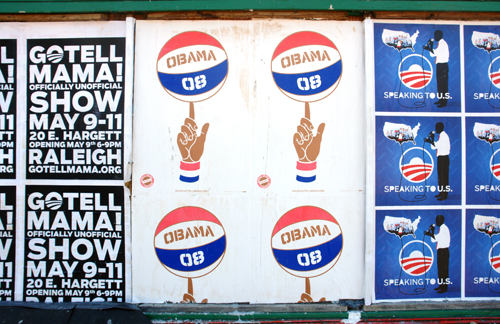the pearly light
“[T]here was light piercing into the room. She opened her curtains, and looked out towards the bit of road that lay in view, with fields beyond, outside the entrance-gates. On the road there was a man with a bundle on his back and a woman carrying her baby; in the field she could see figures moving—perhaps the shepherd with his dog. Far off in the bending sky was the pearly light; and she felt the largess of the world and the manifold wakings of men to labour and endurance. She was a part of that involuntary, palpitating life. . . .”
—George Eliot, Middlemarch, 1871-72.
a tiny speck
“Will not a tiny speck very close to our vision blot out the glory of the world, and leave only a margin by which we see the blot? I know no speck so troublesome as self.”
—George Eliot, Middlemarch, 1871-72.
eyes of heavenly blue
“Rosamond took off her hat, adjusted her veil, and applied little touches of her finger-tips to her hair—hair of infantine fairness, neither flaxen nor yellow. . . . [T]he two nymphs—the one in the glass, and the one out of it . . . looked at each other with eyes of heavenly blue, deep enough to hold the most exquisite meanings an ingenious beholder could put into them, and deep enough to hide the meaning of the owner if these should happen to be less exquisite.”
—George Eliot, Middlemarch, 1871-72.
GOTELLMAMA.ORG
 Hillsborough Street, Raleigh, North Carolina. I love these posters. I missed the exhibition mentioned in the one to the left, but I learned at GOTELLMAMA.ORG that the central poster is based on the Harlem Globetrotters logo and that it was printed with red, blue and copper ink.
Hillsborough Street, Raleigh, North Carolina. I love these posters. I missed the exhibition mentioned in the one to the left, but I learned at GOTELLMAMA.ORG that the central poster is based on the Harlem Globetrotters logo and that it was printed with red, blue and copper ink.
My friend Carl Dahle bought Michelle Obama a beer at The Raleigh Times the day that Barak Obama won the North Carolina primary. No, really! You can read all about it here.
an obfuscation of the War on Drugs
“Drugs, as a general term, is an obfuscation of the War on Drugs. We hear the phrase ‘alcohol and drugs,’ as if alcohol were not a drug, and as if by drugs we all know what is being talked about. Addiction is an issue with tobacco, alcohol, and the opiates, but is not at all a property of the entheogens. Addiction to alcohol, a cellular poison, is characterized by physical and mental deterioration that is virtually absent in opiate addiction. Tobacco kills nearly half a million Americans each year, but there are no recorded deaths from marijuana. Each of these plants and substances has distinct properties, promises, and dangers. All that is served by lumping a group of them together is a government program of spiritual and political oppression aimed at cutting off all dialogue.
The War on Drugs is in essence a religious war. That is why drug offenders frequently get longer prison sentences than violent criminals. A drug user is worse than a criminal—no punishment is too severe, because drug users are heretics.”
—Dale Pendell, “Amrta: The Neuropharmacology of Nirvana”; The Wisdom Anthology of North American Buddhist Poetry, edited by Andrew Schelling, 2005.
The best piety
“‘The best piety is to enjoy—when you can. You are doing the most then to save the earth’s character as an agreeable planet. And enjoyment radiates. It is of no use to try and take care of all the world; that is being taken care of when you feel delight—in art or in anything else.’”
—George Eliot, Middlemarch, 1871-72.
evening light
“She talked little; but that was an additional charm. She was melancholy, and seemed grateful; her presence was enough, like that of the evening light.”
—George Eliot, Middlemarch, 1871-72.
the last yellow gig
“‘That is Mrs Waule’s gig—the last yellow gig left, I should think. When I see Mrs Waule in it, I understand how yellow can have been worn for mourning. That gig seems to me more funereal than a hearse. But then Mrs Waule always has black crape on. How does she manage it, Rosy? Her friends can’t always be dying.’”
—George Eliot, Middlemarch, 1871-72.
red herrings
“‘Mamma,’ said Rosamond, ‘when Red comes down I wish you would not let him have red herrings. I cannot bear the smell of them all over the house at this hour of the morning.’”
—George Eliot, Middlemarch, 1871-72.
Changs
“Chang Chio, in the 2nd century, called himself the Yellow God and led an army of 360,000 followers, all wearing yellow turbans. They brought down the Han Dynasty. . . .
Chang Seng-yu, in the 6th century, painted a pair of dragons without eyes on the Temple of Peace and Joy, and warned that the painting should never be completed. A skeptic filled in the eyes, and the walls of the temple crashed to ruins as the dragons flew off. . . .
Chang Chu, a poet in the 13th century, wrote a line, ‘The cataclysm of red sheep,’ that no one has ever been able to explain. . . .
Chang Jen-hsi, in the 18th century, wrote a treatise on ink.”
—Eliot Weinberger, excerpts from “Changs”; The Wisdom Anthology of North American Buddhist Poetry, edited by Andrew Schelling, 2005.